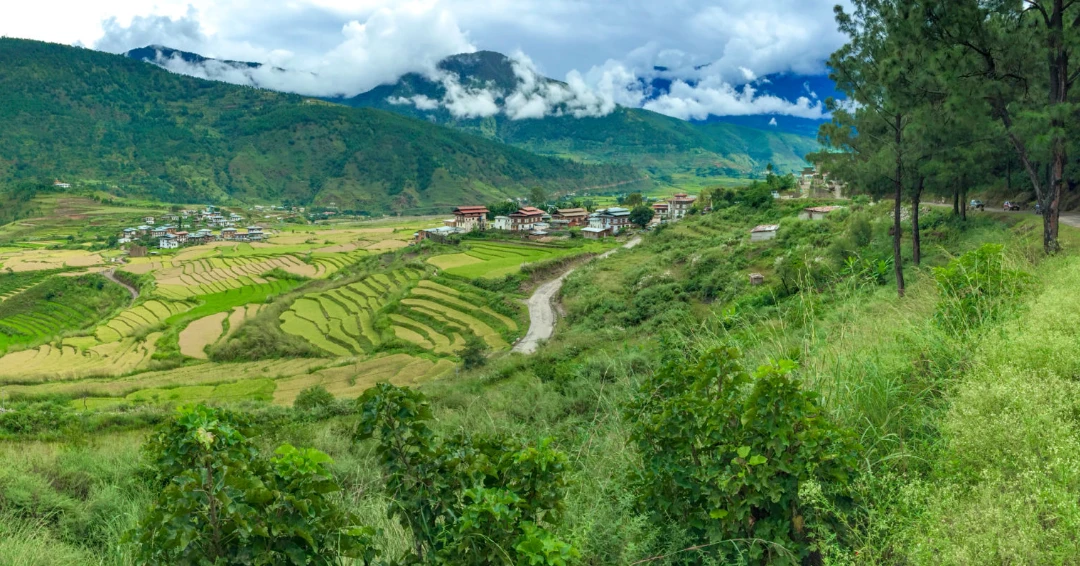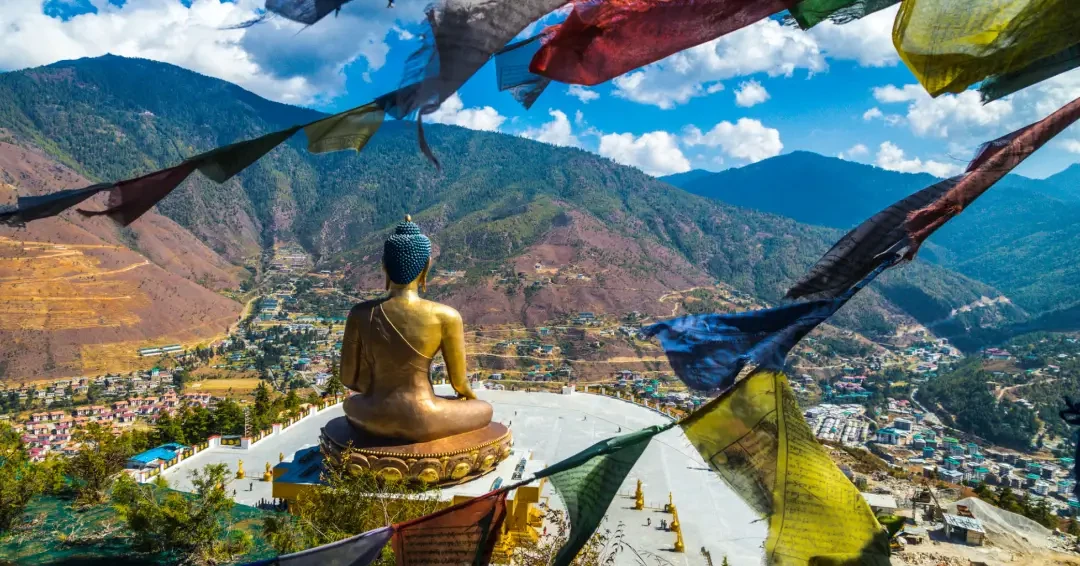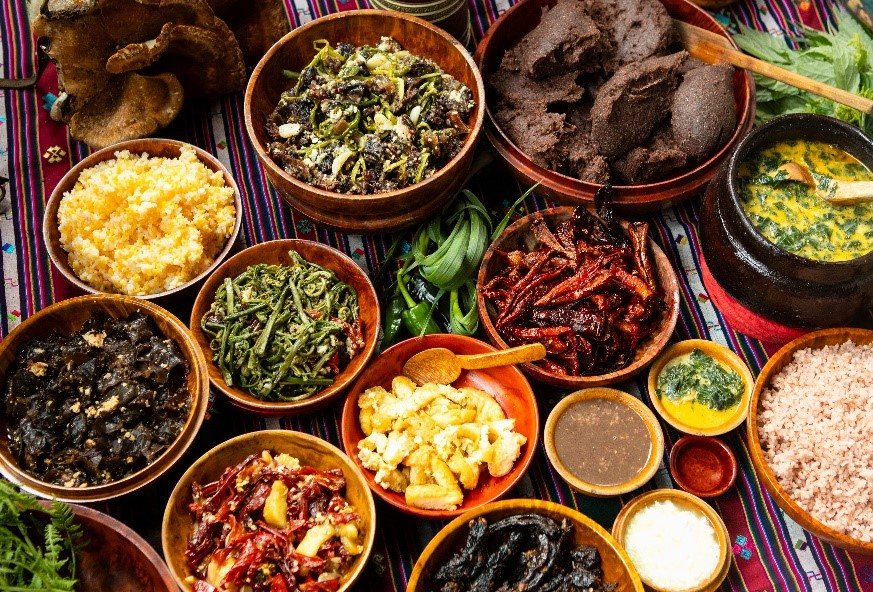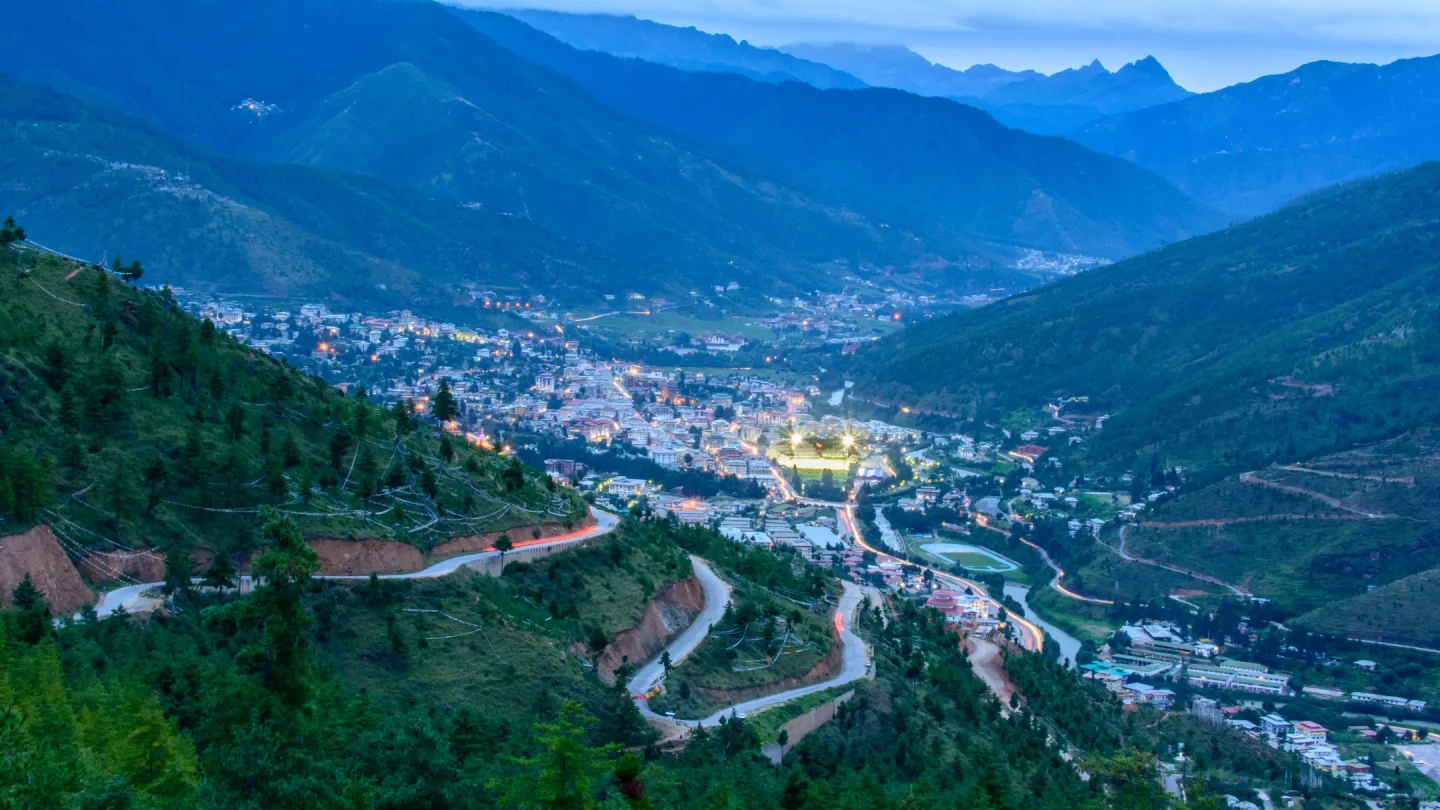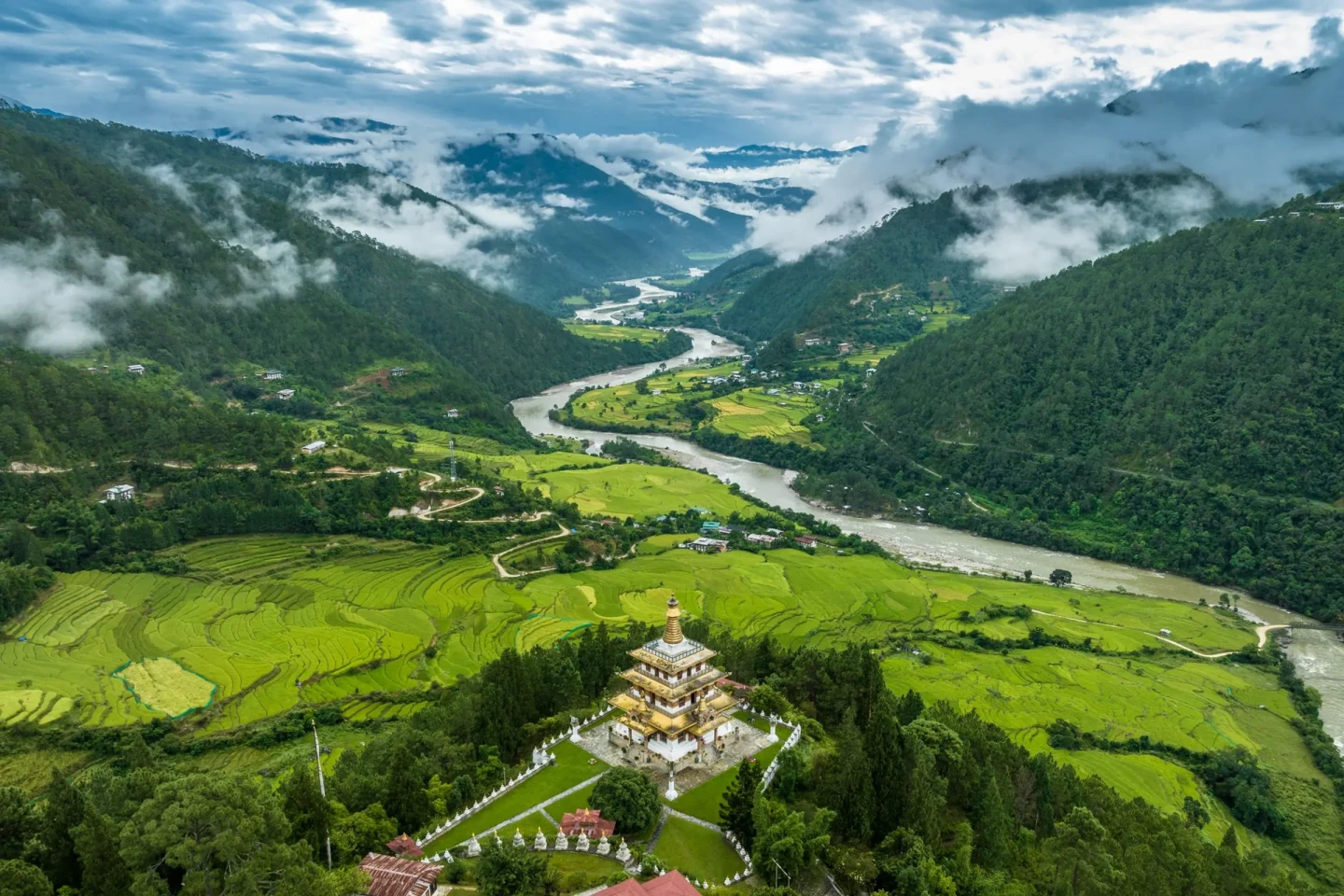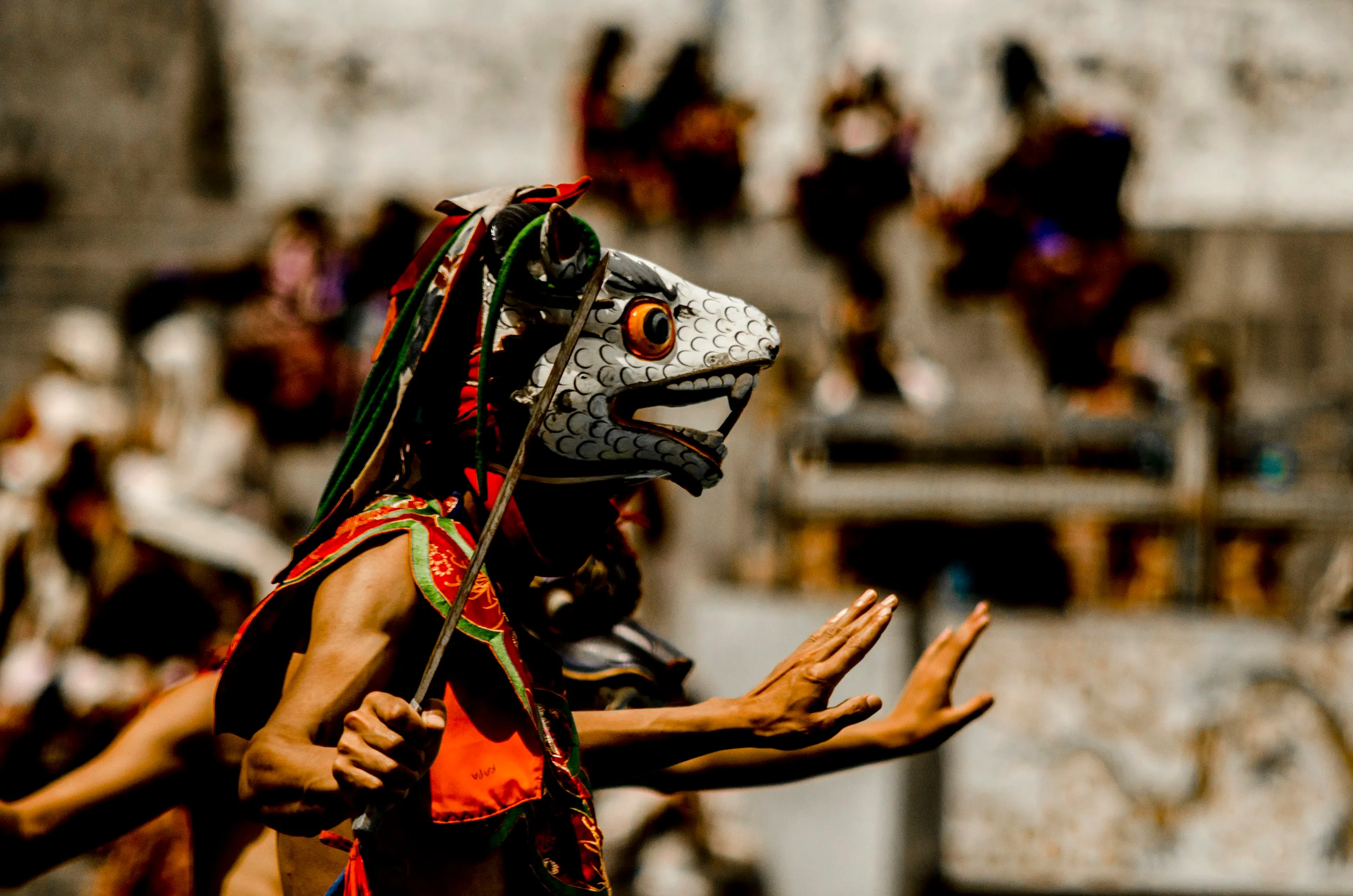Nestled in the eastern Himalayas, Bhutan stands as a beacon of preserved natural beauty, profound spirituality, and a unique approach to life that prioritizes happiness over material wealth. For Liberian travelers embarking on this adventure, Bhutan offers a stark yet enchanting contrast to the vibrant, tropical landscapes of Liberia. While Liberia boasts lush rainforests, Atlantic coastlines, and a resilient spirit shaped by its history of independence and cultural diversity, Bhutan is a landlocked kingdom defined by towering mountains, ancient monasteries, and a commitment to environmental conservation that has kept much of its terrain pristine and forested. Both nations, though worlds apart geographically—one in West Africa and the other in South Asia—share similarities as small, developing countries navigating global influences while cherishing their sovereignty and cultural heritage. Diplomatic relations between Liberia and Bhutan are maintained indirectly through multilateral forums like the United Nations, where both advocate for sustainable development and peace, fostering a subtle bond of mutual respect among smaller nations. This guide, crafted from the perspective of an experienced Bhutanese travel consultant, aims to bridge these distant worlds by providing Liberian visitors with a realistic yet inspiring overview of what to expect. Bhutan is not a destination for hurried sightseeing; it invites introspection amid its serene valleys and sacred sites, rewarding those who approach with an open heart and a willingness to embrace its slower, more mindful pace. As you prepare to transition from Liberia's warm, humid climate to Bhutan's crisp mountain air, anticipate a transformative experience that highlights the universal pursuit of well-being, much like Liberia's own emphasis on community and endurance.
Visa and Entry Requirements
Bhutan's tourism policy is meticulously controlled to preserve its environment, culture, and infrastructure, requiring all foreign visitors, including those from Liberia, to book their trips exclusively through licensed Bhutanese tour operators. This high-value, low-impact approach ensures that tourism benefits the local economy without overwhelming the kingdom's resources. For Liberian tourists, the visa process begins with selecting a reputable tour operator who will handle the application on your behalf. You will need to provide a scanned copy of your passport, valid for at least six months from your arrival date, along with a recent passport-sized photo and proof of travel insurance covering medical emergencies and evacuation. The operator submits these documents to the Tourism Council of Bhutan, which processes the eVisa, typically within 72 hours once full payment for the tour, including the Sustainable Development Fee (SDF), is received. The SDF, set at USD 100 per person per night as of 2025, is a mandatory contribution that funds Bhutan's free education, healthcare, and environmental initiatives, directly impacting the overall pricing of your trip by adding a structured daily cost. Children under six are exempt, while those aged 6-12 pay half. Payment is tied inextricably to visa approval; without settling the SDF and tour fees in advance via bank transfer, the visa letter will not be issued. Upon approval, you'll receive a visa clearance letter to present at immigration in Paro International Airport or land borders. This system not only streamlines entry but also guarantees that your visit aligns with Bhutan's ethos of sustainability, allowing Liberian travelers to focus on the journey rather than bureaucratic hurdles.
Travel Routes from Liberia to Bhutan
Traveling from Liberia to Bhutan involves a multi-leg journey that reflects the geographical distance between West Africa and the Himalayas, often requiring patience and flexibility due to limited direct connections. Starting from major Liberian cities like Monrovia, the primary international airport is Roberts International Airport (ROB), from which you can fly to transit hubs in Europe, the Middle East, or Asia. Common routes include flying with airlines such as Brussels Airlines or Ethiopian Airlines to cities like Brussels, Addis Ababa, or Istanbul, then connecting to major Asian gateways such as Delhi in India, Bangkok in Thailand, or Kathmandu in Nepal. From these points, only two airlines operate flights into Bhutan: Drukair (Royal Bhutan Airlines) and Bhutan Airlines, both of which fly into Paro International Airport, the kingdom's sole international gateway. Paro Airport is renowned for its challenging approach, nestled in a narrow valley surrounded by mountains, which limits operations to daylight hours and visual flight rules, often leading to weather-related delays, especially during the monsoon season. Liberian travelers should book flights well in advance, ideally through their tour operator, who can coordinate seamless connections and handle any rescheduling. Expect total travel times of 20 to 30 hours, with layovers providing opportunities to rest. Realistic expectations include potential overnight stays in transit cities and the need for flexible scheduling, as Bhutan's aviation constraints prioritize safety over convenience, ensuring that your arrival in this remote kingdom feels like a well-earned milestone.
Best Time to Visit and Seasonality
Bhutan's seasons profoundly influence the travel experience, with weather patterns varying dramatically across its mountainous terrain, affecting everything from visibility to festival schedules. Spring, from March to May, brings mild temperatures averaging 10-20°C in the valleys, blooming rhododendrons and clear skies ideal for trekking and sightseeing, though occasional showers can occur. Summer, June to August, is the monsoon period with heavy rainfall, warmer lows of 15-25°C, and lush greenery, but landslides and flight disruptions make it less favorable, except for those seeking solitude in western Bhutan. Autumn, September to November, offers crisp air at 5-15°C, harvest festivals, and stunning Himalayan views, drawing crowds but providing perfect conditions for cultural immersion. Winter, December to February, sees cold snaps down to -5°C in higher altitudes with snowfall, yet dry weather suits low-altitude explorations and fewer tourists. For Liberian travelers accustomed to tropical warmth, autumn emerges as the optimal time, balancing comfortable weather for outdoor activities like hiking to Tiger's Nest with lower crowd levels compared to spring. Festivals such as Thimphu Tshechu in September-October highlight masked dances and religious rituals, enhancing cultural depth, while avoiding peak monsoon reduces risks of itinerary changes. Planning around these seasons ensures a harmonious trip, aligning Liberia's vibrant communal spirit with Bhutan's seasonal rhythms.
Money, Costs, and Payment Methods
Bhutan's currency, the Ngultrum (BTN), is pegged one-to-one with the Indian Rupee, facilitating easy exchanges, though Liberian travelers should primarily carry US Dollars for conversion upon arrival at Paro Airport or banks in Thimphu. ATMs are available in major towns like Thimphu and Paro, accepting Visa and Mastercard with withdrawal limits around USD 200 per transaction, but reliability diminishes in remote areas, so cash reserves are advisable. Credit cards are increasingly accepted in upscale hotels and souvenir shops, yet many local vendors prefer cash, making it essential to budget for smaller denominations. Tour prices, mandated by the government, typically include accommodations, meals, transportation, a licensed guide, and the SDF, starting from around USD 250 per day for groups, but extras like alcoholic beverages, tips (USD 10-15 per day for guides and drivers), and personal shopping fall outside this. For Liberians, converting Liberian Dollars to USD beforehand minimizes fees, and understanding that Bhutan eschews haggling in favor of fixed prices helps manage expectations. Overall costs for a week-long trip might range from USD 2,000-3,000 per person, excluding international flights, emphasizing value through inclusive services that support local communities.
Health, Safety, and Travel Insurance
Health considerations in Bhutan revolve around its high-altitude terrain, where elevations often exceed 2,500 meters, posing risks of acute mountain sickness with symptoms like headaches, nausea, and fatigue that can affect even fit individuals. Liberian travelers, coming from sea-level environments, should acclimatize gradually, staying hydrated and avoiding strenuous activity initially. Recommended vaccinations include hepatitis A and B, typhoid, and tetanus, with malaria prophylaxis unnecessary except in southern border areas. Medical facilities are basic outside Thimphu, where Jigme Dorji Wangchuck National Referral Hospital provides competent care, but complex cases require evacuation to India or Thailand. Travel insurance with comprehensive coverage for high-altitude activities and emergency helicopter evacuation is not just advisable but mandatory for visa approval, as Bhutan's remote locations amplify risks. Safety-wise, Bhutan boasts remarkably low crime rates, with petty theft rare and violent incidents virtually nonexistent, fostering a secure environment for exploration. However, minor hazards like stray dogs, which may carry rabies, and uneven mountain paths demand vigilance—carry a flashlight for evenings and rabies vaccination if planning rural stays. This blend of proactive health measures and inherent safety allows Liberian visitors to immerse confidently in Bhutan's tranquility.
Cultural Etiquette and Social Expectations
Bhutanese society is deeply rooted in Buddhist principles of respect, humility, and harmony, requiring tourists to adapt behaviors to honor these values, particularly in religious and public settings. When entering temples or monasteries, remove shoes, hats, and sunglasses, dress modestly with covered shoulders and knees—long pants or skirts are ideal—and speak softly to maintain sanctity. Photography inside sacred spaces is often prohibited, and always seek permission before capturing people, using your right hand or both for giving and receiving items to avoid offense. Liberian travelers, known for their warm, expressive interactions, might find Bhutan's emphasis on patience and subtlety a gentle adjustment; loud conversations or direct confrontations are uncommon, replaced by polite deference and smiles. In social encounters, greet with "Kuzuzangpo la" (hello) and a slight bow, accepting tea or food offered as a sign of hospitality without refusal. Modesty extends to public displays of affection, which are discreet, and humility is prized over boasting. By embracing these nuances, visitors from Liberia can forge meaningful connections, appreciating how Bhutan's cultural fabric weaves respect into daily life, much like Liberia's own communal traditions.
Connectivity, SIM Cards, Internet Access
Connectivity in Bhutan has improved significantly, yet it remains patchy in remote areas, making preparation key for staying in touch. Wi-Fi is reliably available in most hotels and cafes in urban centers like Thimphu and Paro, often free but with varying speeds suitable for emails and light browsing rather than streaming. For mobile data, tourists can purchase prepaid SIM cards from B-Mobile or TashiCell upon arrival at the airport or outlets in major towns, requiring a passport copy and photo for activation. These provide affordable 4G coverage in populated valleys, with packages starting at around USD 5 for 1GB of data valid for a week, ideal for navigation apps or calls home. Liberian apps like WhatsApp work seamlessly, though occasional restrictions on certain services might necessitate a VPN for unrestricted access. In higher altitudes or eastern regions, signals weaken, so download offline maps beforehand. This setup ensures Liberian travelers can share their Himalayan adventures without complete disconnection, balancing Bhutan's serene isolation with modern needs.
Language and Communication
Dzongkha serves as Bhutan's national language, a Tibeto-Burman tongue spoken in daily life, but English is the medium of instruction in schools and widely used in tourism, alleviating barriers for English-speaking Liberians. Licensed guides, mandatory for all tours, are fluent in English, providing insightful commentary on history and customs, while hotel staff and shopkeepers in tourist areas communicate effectively. In rural villages, Hindi or Nepali might supplement, but gestures and smiles bridge gaps. For travelers with limited English, tour operators can arrange multilingual guides upon request, though English prevalence makes this rare. Communication strategies include learning basic Dzongkha phrases like "thank you" (Kadinchey la) to show respect, and relying on visual aids or translation apps. This linguistic accessibility fosters deeper interactions, allowing Liberians to engage authentically with Bhutanese warmth.
Packing and Preparation Advice
Packing for Bhutan demands versatility to handle its diverse climates, from subtropical lowlands to chilly highlands, where temperatures fluctuate daily. Layering is essential: include breathable t-shirts, long-sleeve shirts, fleece jackets, and a waterproof windbreaker for rain or wind. Sturdy hiking boots with good grip are crucial for trails, paired with wool socks and comfortable walking shoes for towns. Modest clothing like long pants and scarves respects cultural norms, while a hat, sunglasses, and high-SPF sunscreen protect against intense UV at altitude. Personal items should encompass reusable water bottles for hydration, hand sanitizer, wet wipes, and toilet paper, as facilities vary. Medications are vital—pack altitude sickness remedies like acetazolamide (consult a doctor), pain relievers, antidiarrheals, and any prescriptions, plus insect repellent for lower elevations. Power adapters for Bhutan's 230V sockets (types D, M, G) and a portable charger address occasional outages. For Himalayan conditions unfamiliar to Liberians, add ginger chews for nausea, lip balm for dry air, and binoculars for wildlife. This thorough preparation ensures comfort amid Bhutan's unpredictable weather.
Bhutan’s Unique Tourism Philosophy
At the heart of Bhutan's tourism lies the philosophy of Gross National Happiness (GNH), a visionary framework introduced by the Fourth King in the 1970s, which measures progress through psychological well-being, cultural preservation, environmental sustainability, and good governance rather than GDP alone. This ethos shapes cautious policies that limit visitor numbers via the SDF and mandatory guided tours, prioritizing quality experiences that minimize ecological footprints and cultural dilution. For Liberian travelers, understanding GNH reveals why Bhutan resists rapid modernization—skyscrapers and mass tourism could erode its forests (over 70% coverage mandated by constitution) and traditions. Instead, the kingdom fosters meaningful interactions, where revenue supports free healthcare and education, echoing Liberia's aspirations for equitable development. By preferring discerning visitors over hordes, Bhutan safeguards its soul, inviting Liberians to partake in a model of mindful travel that values happiness as the ultimate metric.
Mindset and Expectations for Visitors
Adjusting expectations is key to appreciating Bhutan, where life unfolds at a contemplative pace far removed from urban hustle. Infrastructure is developing but limited—roads wind narrowly through mountains, small family-run hotels offer cozy simplicity over opulent luxury, and nightlife is nonexistent, with evenings best spent stargazing or in quiet reflection. Liberian travelers, used to vibrant markets and social gatherings, may initially notice the absence of shopping malls or fast-paced entertainment, but this void highlights Bhutan's strengths: pristine nature, spiritual depth, and cultural authenticity. Embrace potential delays as opportunities for serendipity, and view modest accommodations as gateways to genuine hospitality. This mindset shift transforms perceived limitations into charms, allowing visitors to find peace in simplicity, aligning with Liberia's own emphasis on resilience and community.
Food and Dining Culture
Bhutanese cuisine is hearty and flavorful, centered on red rice, chilies, and cheese, reflecting a culture where food symbolizes hospitality and sustenance in harsh climes. Signature dishes like ema datshi—chilies stewed in cheese sauce—deliver spicy kicks, while momos (dumplings) and phaksha paa (pork with radish) add variety, often accompanied by suja (butter tea) for warmth. Meals are simple yet communal, eaten with hands or utensils, emphasizing fresh, organic ingredients from local farms. Alcohol, like ara (rice wine), features in social rituals, but moderation prevails in Buddhist contexts. For Liberians accustomed to bold flavors in dishes like fufu or palm butter, Bhutan's spice-heavy profile offers familiarity, with vegetarian options abundant. Dining fosters connections, as hosts generously share, embodying the kingdom's welcoming spirit.
Festivals, Religion, and Sacred Places
Religion permeates Bhutanese life through Vajrayana Buddhism, where festivals like Tshechus honor Guru Rinpoche with masked dances, music, and rituals in dzongs (fortresses). These events, such as Paro Tshechu in spring, draw communities in traditional attire, offering insights into spiritual narratives. Sacred sites like Taktsang Monastery require respectful conduct: clockwise circumambulation, no pointing at deities, and silence during prayers. For Liberians, these experiences deepen cultural understanding, revealing how faith integrates with daily harmony, contributing to a profound appreciation of Bhutan's soul.
Hidden Challenges and Practical Inconveniences
Bhutan's allure includes minor inconveniences that, when viewed positively, enhance its authenticity—slow service in eateries stems from a relaxed ethos, itinerary tweaks arise from weather-dependent roads, and power outages in rural areas encourage candlelit conversations. Uneven paths and basic amenities reflect preserved landscapes, demanding patience that rewards with unspoiled vistas. Framing these as integral to Bhutan's charm, rather than flaws, allows Liberian travelers to embrace the journey's organic flow.
Shopping and Souvenirs
Shopping in Bhutan focuses on artisanal treasures like handwoven textiles (kira and gho fabrics), wooden masks, and incense, found in Thimphu's weekend market or Paro's handicraft stalls. Authenticity is assured through government emporiums, with bargaining minimal and polite. Liberians will appreciate the cultural significance of items like prayer flags or Dzi beads, avoiding high-end malls in favor of supporting local weavers.
Altitude Awareness and Physical Preparedness
Altitude in Bhutan varies from 200 to over 4,000 meters, potentially causing sickness with symptoms like dizziness; precautions include ascending slowly, hydrating (3-4 liters daily), and avoiding alcohol. Acclimatize in Paro before higher treks, and consult doctors for medications. Physical prep through cardio builds stamina, ensuring safe enjoyment.
Security, Safety, and Emergency Information
Bhutan's safety is exemplary, with low crime and welcoming locals, though respect local laws like tobacco bans. Emergency contacts include 112 for ambulance, 113 for police; Liberian embassy access is via India. Insurance covers evacuations, reinforcing secure travels.
Photography and Drones
Photography is welcomed outdoors but restricted inside temples; ask permission for portraits. Drones are prohibited for tourists, requiring special permits rarely granted, emphasizing respectful capture of Bhutan's essence.
What Bhutan Does Not Have
Bhutan lacks skyscrapers, fast-food chains, casinos, and mega-malls, preserving its identity through GNH; this absence cultivates appreciation for nature and simplicity, a refreshing contrast for Liberians.
Important Questions to Ask Before Booking a Tour
Before committing to a Bhutanese tour operator, Liberian travelers should inquire thoughtfully to ensure a tailored experience. Start by asking about the guide's qualifications and language proficiency, confirming they are licensed and fluent in English to facilitate clear communication during cultural explorations. Probe the itinerary's flexibility, questioning how weather or personal preferences might allow adjustments, such as extending time at festivals or incorporating lighter activities for altitude concerns. Discuss accommodations in detail, seeking descriptions of hotel standards, locations, and amenities like Wi-Fi or heating, to match your comfort expectations. On food, ask about meal inclusions, dietary accommodations for preferences like less spice or vegetarian options, and opportunities to try local cuisine safely. For emergencies, inquire about protocols, including access to medical facilities, evacuation plans, and how the operator coordinates with your travel insurance. Regarding connectivity, question assistance in obtaining a local SIM card and data reliability across the route. Address language barriers by confirming if multilingual support is available if needed, and clarify tipping customs—typically USD 10-15 daily for guides and drivers—to budget appropriately. Finally, verify insurance requirements, ensuring the policy covers high-altitude risks, and ask about sustainable practices to align with Bhutan's GNH philosophy. These questions, posed conversationally, build trust and customize your adventure.
Conclusion
In reflection, Bhutan emerges as a rare gem for Liberian travelers yearning for depths beyond surface-level tourism—a sanctuary where cultural richness, untouched nature, and spiritual serenity converge to offer profound peace. Unlike commercialized destinations, Bhutan's commitment to Gross National Happiness invites introspection and genuine connections, mirroring Liberia's own values of community and resilience in a Himalayan context. As you return from mist-shrouded monasteries and verdant valleys, carry the kingdom's lessons of mindfulness, reminding that true fulfillment lies in balance, not excess.





